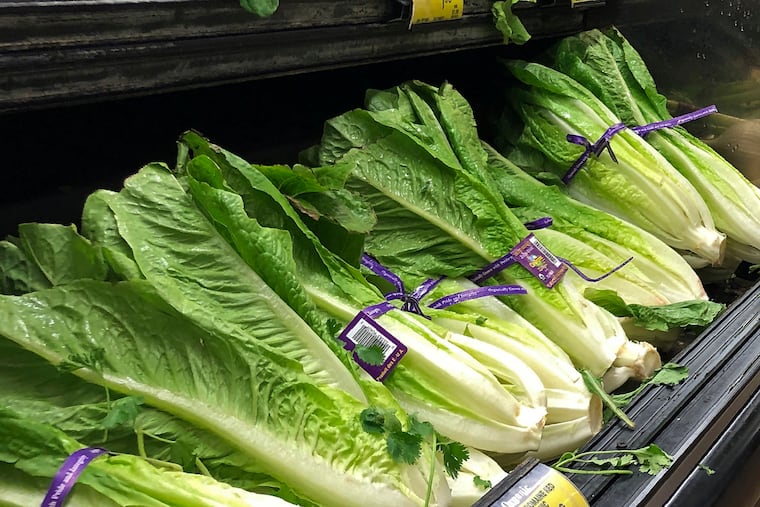Pennsylvania hit by E. coli illnesses linked to tainted romaine lettuce from California
Stay away from romaine unless you know it was grown indoors or outside the Salinas, Calif. region.

Consumers should throw away romaine lettuce and salad mixes from California’s Salinas Valley growing region amid an outbreak of E. coli infections that have sickened 40 people in 16 states, including three in Pennsylvania, advises the U.S. Food and Drug Administration.
If the packaging on romaine doesn’t indicate where it was grown, “throw it away or return it to the place of purchase,” the agency said Friday.
» READ MORE: E. coli: What you need to know
Restaurants and retailers are also advised to throw out Salinas romaine. The FDA has asked the produce industry to voluntarily withdraw product from that region for the rest of the growing season.
Shoppers in the Philadelphia area preparing for Thanksgiving have seen shelves stripped of the sturdy lettuce, a staple in the popular Caesar salad.
No one has died in the latest outbreak, but 28 people required hospitalization. E. coli is a type of bacterium that normally lives in the intestines of animals and people. Infection with certain toxin-producing strains can cause severe diarrhea, vomiting, fever, and, in rare cases, kidney failure. The toxin binds to and kills cells lining the blood vessels of the gut and kidney.
Genetic analysis shows the E. coli strains in this outbreak are similar to the ones that caused outbreaks in 2017 and last year.
Federal public health officials have linked an average of 11 outbreaks a year to leafy greens. The popularity of convenience salad mixes — many containing romaine — and the fact that lettuce cannot be processed in a way that would kill the bacteria are fundamental factors.
Leafy vegetables were responsible for 22% of food-borne illnesses between 1998 and 2008, according to one federal analysis. Women, who tend to eat more salads, are more affected by the outbreaks.